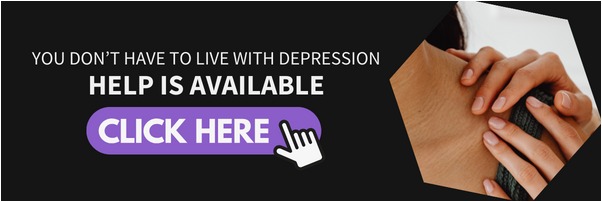Have you ever felt an intense fear just at the thought of an attractive person? If so, you might be experiencing Venustraphobia. This isn’t just a quirky term—it’s a genuine anxiety disorder where individuals feel a deep-seated fear of beautiful women.
While phobias often stem from specific triggers like heights or spiders, Venustraphobia is unique. It’s not about fear of rejection or social anxiety; it’s the sheer presence of beauty that prompts panic.
Understanding Venustraphobia helps shine a light on how varied and personal phobias can be. For those living with it, this phobia can impact social interactions and self-esteem. In this post, we’ll explore its causes, symptoms, and potential ways to cope, offering insight and support for anyone affected or curious about this unusual fear.
Understanding Venustraphobia
Have you ever felt uneasy or anxious when faced with something that most people find beautiful? It’s a feeling that’s more common than you might think. This is where the concept of Venustraphobia comes into play. Let’s explore what this phobia is all about and whether it holds any standing in the psychological community.
Definition of Venustraphobia
Venustraphobia is a term used to describe the fear of beautiful women. The word breaks down into Greek roots: “Venus” refers to the Roman goddess of love and beauty, and “phobia” means fear. Together, they form a term for a fear that might seem unusual but is quite real for those who experience it. People with Venustraphobia might avoid social situations where they’re likely to encounter someone they find attractive, experiencing anxiety or distress at the thought of such interactions. It’s like being caught in a web of unease whenever you come across something or someone perceived as exceptionally beautiful.
Prevalence and Recognition
Are you wondering how common Venustraphobia is? The truth is, it’s not one of the most talked-about phobias. Unlike more common fears like arachnophobia (fear of spiders), Venustraphobia doesn’t have a large body of research dedicated to it. While not officially recognized in psychological literature as a distinct phobia, anecdotal evidence suggests that it affects a small portion of the population.
The recognition of Venustraphobia in professional settings can be akin to looking for a needle in a haystack. It’s often overshadowed by broader social anxiety disorders, but that doesn’t mean it’s any less valid. People suffering from this fear may find their daily lives impacted by avoidance behaviors and heightened stress in social settings. So, while it might not have a high-profile spot in psychology textbooks, understanding and acknowledging this phobia can help those who need support.
Symptoms of Venustraphobia
Venustraphobia, the fear of beautiful women, can manifest in various ways, impacting both the mind and body. Recognizing these symptoms is the first step toward understanding and potentially overcoming this phobia. Let’s explore the common physical and emotional symptoms that individuals might experience.
Physical Symptoms
When faced with a situation that triggers venustraphobia, the body reacts instinctively, much like it would in any fear-inducing scenario. These physical symptoms can be quite noticeable:
- Sweating: You might find your palms getting clammy or a sudden sweat breaking out, even if the room isn’t hot.
- Trembling: Your hands or voice might shake uncontrollably, similar to being out in a cold storm without a coat.
- Rapid Heartbeat: It’s like your heart is playing the drums at a rock concert, racing and pounding in your chest.
These physical reactions are part of the body’s “fight or flight” response, a natural reaction to perceived danger.
Emotional Symptoms
On the emotional side, venustraphobia can create a whirlwind of feelings that are hard to control:
- Anxiety: This can feel like a small anxiety snowball rolling downhill, quickly growing into something overwhelming.
- Panic Attacks: Sudden waves of fear can lead to panic attacks, where everything feels too fast and too much.
- Avoidance Behavior: Sometimes the easiest thing seems to be to avoid certain places or situations altogether, like choosing a different route home to skip an encounter.
These emotional symptoms can make social interactions challenging, leading individuals to isolate themselves from potential triggers. Recognizing these signs is crucial in addressing the phobia head-on.
Causes of Venustraphobia
Venustraphobia, an intense fear of beautiful women, can be puzzling. Often misunderstood, this phobia can stem from various psychological and social factors. Let’s explore some common causes that might contribute to the development of this fear.
Traumatic Experiences
One potential cause of venustraphobia is traumatic experiences related to women or femininity. Imagine a person who has faced humiliation or rejection by women in the past. Such negative encounters can leave emotional scars, influencing their perception and fear of women.
- Rejection: Constant rejection can lead to anxiety, fostering a fear of beautiful women.
- Bullying or Humiliation: Past bullying by female figures can create a lasting sense of aversion.
- Abuse: Abuse or exploitation by women can amplify these feelings, resulting in a defensive mechanism to avoid future pain.
These experiences act like echoes, haunting a person and triggering an intense fear whenever they encounter beauty.
Cultural Influences
Cultural factors often shape our beliefs and fears in unexpected ways. Society’s portrayal of beauty can affect how we perceive and react to femininity.
- Media Portrayals: Movies and advertisements often highlight unrealistic standards of beauty, creating pressure and anxiety.
- Societal Norms: In some cultures, women are seen as mysterious or unattainable, increasing fear or intimidation.
- Gender Roles: Traditional gender roles can influence one’s perception of women, leading to fear if those roles seem restrictive or judgmental.
These influences are like a play with scripted roles, affecting our views and fears without us even realizing it. Understanding these cultural undercurrents can shed light on the origins of this phobia and help people address their fears in a meaningful way.
Diagnosis and Treatment of Venustraphobia
Venustraphobia, the fear of beautiful women, can seriously affect a person’s daily life and interactions. Understanding how it is diagnosed and treated is crucial for those who feel paralyzed by this fear. Let’s take a closer look at the diagnostic process and effective therapeutic strategies.
Psychological Assessment
Diagnosing venustraphobia involves a comprehensive psychological assessment by a mental health professional. This process is like piecing together a puzzle where the therapist gathers clues to understand the root of the phobia. Some common steps include:
- Clinical Interviews: The therapist talks with you to explore your feelings, thoughts, and behaviors around the fear of beautiful women. This conversation helps to determine how the phobia impacts your life and the situations that trigger your fear.
- Questionnaires and Surveys: You might fill out forms that measure anxiety levels and social functioning. These tools help in quantifying the intensity of your phobia.
- Behavioral Observations: Sometimes, therapists observe your reactions in certain situations to get a better sense of the phobia’s impact. This is similar to watching a movie that captures your life moments, highlighting your emotional responses.
These assessments help mental health professionals tailor a treatment plan that best suits your needs, paving the way for effective therapy.
Therapeutic Approaches
Once diagnosed, there are several avenues to explore for treatment. The good news? Many have found relief through these methods.
- Cognitive Behavioral Therapy (CBT): This is like reprogramming your brain’s software. CBT focuses on changing negative thought patterns and behaviors. By working with a therapist, you learn to challenge irrational fears and gradually adjust your responses. Imagine hearing a song that once brought fear but now brings calm—it’s about changing the emotional soundtrack in your mind.
- Exposure Therapy: Think of this as building immunity to your fear. Through gradual exposure to beautiful women in a controlled way, you can reduce anxiety over time. This method works like slowly dipping your toes into cold water before taking the plunge, allowing you to acclimate and overcome fear.
Both approaches require commitment and patience, but they provide valuable tools to reclaim control over your life. With the right guidance and persistence, living with venustraphobia becomes manageable, opening up opportunities for healthier social interactions and self-confidence. Remember, seeking help is the first step towards change.
Coping Strategies
Facing the fear of beautiful women can be daunting. Venustraphobia is a condition that can interfere with daily life, but there are ways to cope and heal. Let’s explore some strategies to help you manage this fear and move toward a more balanced life.
Self-Help Techniques
Navigating the waters of venustraphobia doesn’t have to be done alone. Here are some self-help techniques that can serve as your compass:
- Mindfulness: Practicing mindfulness can help you stay grounded. Try focusing on your breath and observing without judgment. It’s like a mental anchor, helping you stay in the moment rather than getting swept away by fears.
- Journaling: Writing down your thoughts can be incredibly freeing. It’s a safe space to explore your feelings and recognize patterns or triggers. Think of it as having a conversation with yourself that no one else can hear.
- Relaxation Exercises: Simple exercises like deep breathing or progressive muscle relaxation can be powerful tools. They help calm your body’s “fight or flight” response during anxious moments. Imagine your muscles are like springs; these exercises help them unwind.
Focusing on these techniques can create a toolkit that you can reach for whenever anxiety strikes.
Support Systems
In tough times, having a reliable support system can be a lifeline. Surrounding yourself with understanding people can make a big difference:
- Friends and Family: Lean on the people close to you. Share your experiences and fears with them. Often, just knowing someone is there to listen can be soothing.
- Support Groups: Connecting with others who understand what you are going through can be reassuring. Look for local or online groups focused on anxiety disorders. It’s like finding a community where everyone speaks the same language and understands your journey.
Support systems act like a sturdy bridge, helping you cross the turbulent waters of fear to reach calmer shores.
By embracing these coping strategies, you can gradually gain control over venustraphobia and lead a more fulfilling life.
Conclusion
Venustraphobia, the fear of beautiful women, can deeply impact the lives of those it affects. It might seem odd to some, but this phobia can be as crippling as any other fear. Understanding its roots, symptoms, and treatment options is vital for anyone dealing with this condition. Here’s a quick recap and a gentle nudge towards seeking help if needed.
Key Points Recap
- Understanding the Fear: Venustraphobia is a genuine anxiety triggered by the presence or thought of beautiful women. It can lead to intense discomfort and avoidance behavior.
- Recognizing Symptoms: Symptoms can range from sweating and rapid heartbeat to more severe anxiety attacks.
- Available Treatments: Therapy options like cognitive-behavioral therapy (CBT) and exposure therapy can effectively reduce this phobia’s impact.
Facing a fear like venustraphobia isn’t easy, but acknowledging it is the first step toward change. If this phobia resonates with you, it might be time to reach out for help.
Encouragement to Seek Help
Why wait in the shadows when you can step into the light? Everyone deserves to live without the chains of fear holding them back. If you or someone you know struggles with venustraphobia, connecting with a mental health professional can open doors to freedom and peace. Remember, you’re not alone, and support is just a conversation away. Take charge of your life and tackle this fear with courage.








